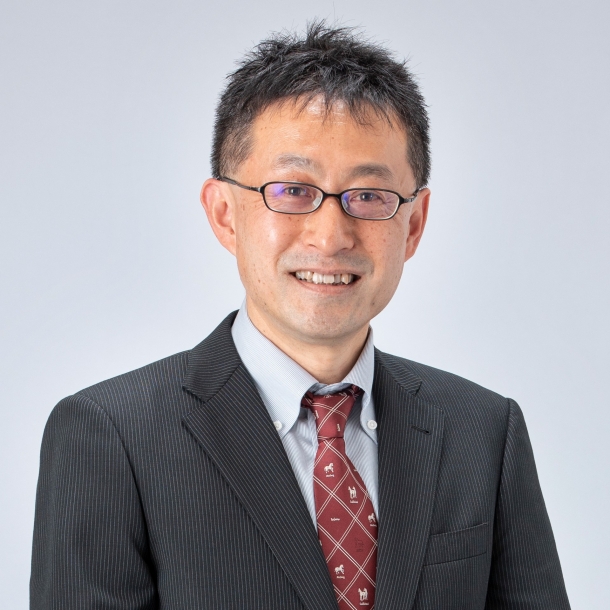- About the School
- Message from the Dean
Message from the Dean
Nurturing Global Leaders through Interdisciplinary Asia-Pacific Studies
Atsushi KATO
Dean and Professor, Graduate School of Asia-Pacific Studies, Waseda University

It is predicted that by the mid-21st century, Asia will have more than half the world’s population and generate more than half of the world’s GDP*. Whether this prediction will come true or not is uncertain, but it is at least certain that the Asian region will have a much greater influence in the world than it has ever had before. Asia’s responsibility to halt global environmental destruction is also increasing. However, Asia is still confronted with disparities and conflicts on many fronts, including nationality, ethnicity, religion, class, and gender, and it is difficult to say that Asia is forming a stable foundation for leading the world toward peace and prosperity. For Asia, as a member of the world, to contribute to global peace and prosperity, it has become more important than ever before in history to better understand Asia, confront the problems it faces, and explore ways to work toward solutions.
The Graduate School of Asia-Pacific Studies (GSAPS) was established in April 1998 with the aim of “researching history, politics, economy, industry, management, society, culture and international relations of the Asia-Pacific region through global and local interdisciplinary approaches.” GSAPS strives to embody the Mission of Waseda University, which is “to foster ways and means of utilizing knowledge side by side with the carrying on of academic research and learning, thereby contributing to the progress of civilization.”
Based on the above ideals, GSAPS provides an interdisciplinary curriculum across three areas of specialization – “Area Studies,” “International Relations,” and “International Development/Policy Studies.” Moreover, GSAPS possesses six unique characteristics, including 1) Bilingual education in Japanese and English, 2) An international learning environment with students from over 50 countries and regions, 3) A comprehensive research environment specially designed for graduate study, 4) Faculty with diverse, real-world experience, 5) Active support for international activities, and 6) A global network of active alumni. In addition, GSAPS works with the Waseda Institute of Asia-Pacific Studies (WIAPS), which actively promotes academic seminars, international conferences, WIAPS Research Group activities, publications, and the hosting of visiting scholars and researchers from all over the world.
GSAPS has numerous institutional partnerships with universities across the globe and pursues active international collaboration in research and education. GSAPS has partnerships with graduate schools of international relations, including the George Washington University Elliot School (U.S.A.), London School of Economics and Political Science Department of International Relations (U.K.), Graduate Institute of International and Development Studies, Geneva (Switzerland), Hertie School of Governance (Germany), Seoul National University Graduate School of International Studies (South Korea), and Chulalongkorn University Faculty of Political Science (Thailand). In addition, double-degree programs have been established with the School of International Studies, Peking University (China) and the Institute for European Studies, Université Libre de Bruxelles (Belgium). Moreover, the East Asian University Institute (EAUI) Program, developed and managed by Korea University, Nanyang Technological University (Singapore), Peking University, and Thammasat University (Thailand) in collaboration with GSAPS, aims to deepen regional integration and cooperation in Asia by fostering student learning through semester exchanges, summer schools, and seminars.
To support the advancement of international research and education programs, GSAPS has obtained substantial external funding through programs including the Japanese Ministry of Education, Culture, Sports, Science and Technology (MEXT) Global Centers of Excellence Program for the establishment of the Global Institute for Asian Regional Integration (2008-2011) and the Inter-University Exchange Project for the establishment of the East Asian University Institute (EAUI) for Asian Regional Integration (2011-2016). Currently, GSAPS has been selected for the MEXT International Priority Graduate Program (“Building Global Governance Capacity to Achieve S.D.G.s: An Asian-European Inter-regional Training Program”), the Japan International Cooperation Agency (JICA) Development Studies Program, and JICA’s project to establish a Master of Global Leadership at Vietnam Japan University.
Through the curriculum and programs described above, GSAPS has accepted students from more than fifty countries and regions since its establishment in 1998 and granted 3,957 MA degrees and 402 Ph.D. degrees (as of September 2024). The GSAPS graduates actively contribute to the betterment of global society, working in various fields, including research and education, government, business and industry, civil society, and international organizations.
There are many global-scale issues in the world that cannot be solved within the framework of nation-states, such as poverty, environmental problems, infectious diseases, and immigrant refugee problems, and the need for international cooperation to solve these issues is strongly recognized. Violence erupted as divisions and conflicts sharpened in some areas, and while many people never want violence, they are at the mercy of reckless political decisions, depriving them of life and happiness. It is my sincere hope that students from all over the world will build friendships and trust among each other during their studies at the Graduate School of Asia-Pacific Studies, and that they will bond across borders and become leaders who can overcome crises when they creep up in the future.
*Asian Development Bank (2011) Asia 2050: Realizing the Asian Century. Available at the following: Asia 2050: Realizing the Asian Century | Asian Development Bank (adb.org)
